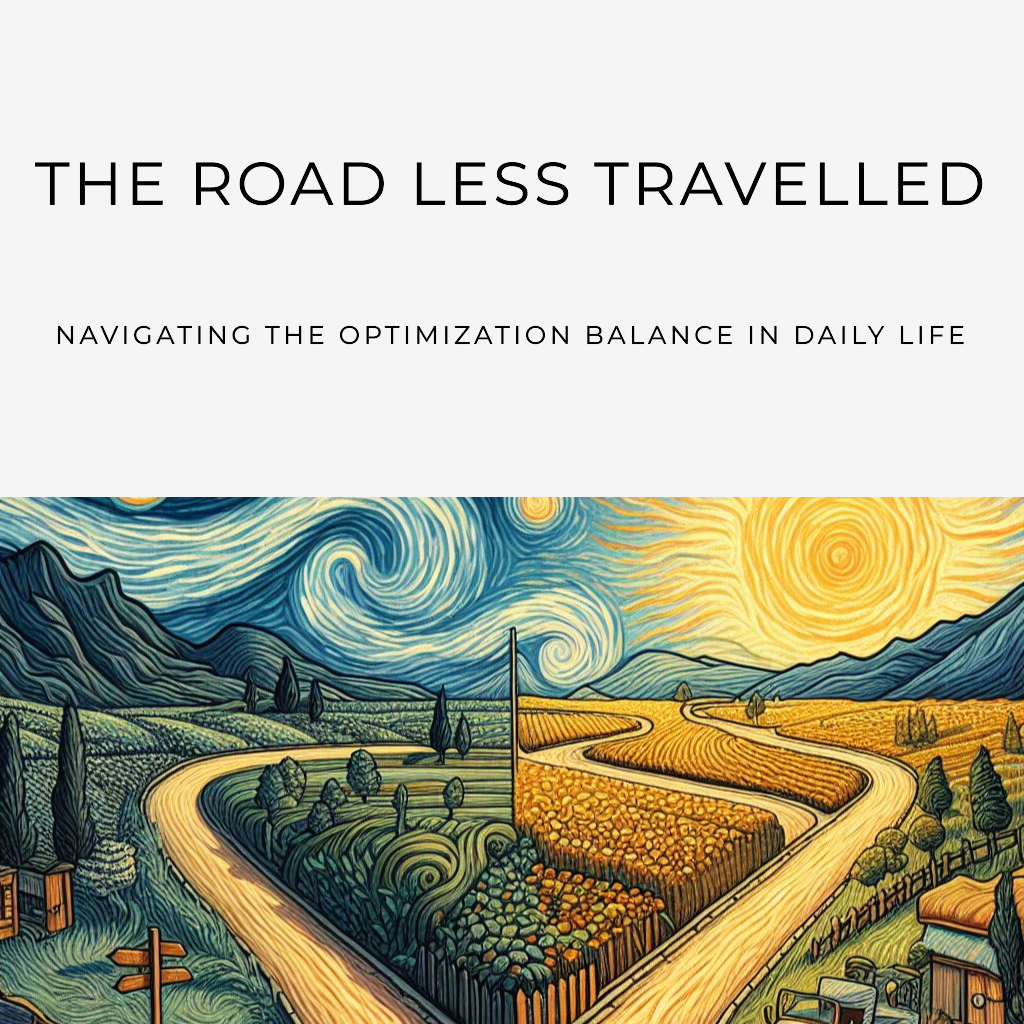Optimization is the pursuit of perfection—and we optimize for our goals because we don’t want to settle. However, is it better to go all the way? How much optimizing is too much?
We live in a fast-moving world that emphasizes maximizing benefits and optimizing experience and production processes. We hate slack, and we seek to minimize costs and time-wasting.
We often think about life in economic terms that value money and materials in general over anything that is shortsighted. We calculate losses and gains when we analyze decision options and opportunity costs. We use the term tradeoffs when choosing an option over the as if we traded something for another.
The fact is that we are not and should not always trade. We should choose based on our values and principles. Thus, it’s not a tradeoff when we make a choice. There is no opportunity cost here; we didn’t lose an opportunity; we made the opportunity.
Many factors may influence the optimization process. There are Internal innate factors and external factors.
We usually overvalue external over internal factors when making decisions or engaging in planning.
External factors, especially limited resources such as time and money, are prioritized over internal factors such as your intentions, values, and personal goals.
I was invited to an annual family gathering where everyone came from a distant place, and cousins discussed their return route. Inevitably, Google Maps were undoubtedly part of the conversation.
In Egypt, where I live, I spend hours each day commuting to work. Going from one hospital to another and later at night to my outpatient clinic. The everchanging new roads, closed roads, and random traffic management dictate our dependence on GPS.
Not to mention the Formula One or even NASCAR style of the Egyptian driving style where everyone is fighting for the bread and butter each day, driving by itself is a daily adventure. Proper optimization is a must.
Nonetheless, we put time above everything in our optimization process. During our daily hustle, we forget all other parameters that may have a drastic effect on our mental and physical health.
Do you look at your GPS route every time you drive to work? You will notice that Google has introduced the option of choosing a route that is environmentally friendly.
Google Maps does not take into consideration your values, nor does it care about your emotions today.
Google Optimization currently comes in black and white. It allows you to choose the route with the shortest time, no tolls, or the one with less energy consumption.
All these are very objective parameters to optimize for time, money, and energy. What about the other more important subjective parameters?
A route you took a long time ago has all your memories, which is just 2 minutes longer, and you won’t be fired for that.
What about a scenic road while you get to enjoy your daily commute and spend a little more on your gas?
How about a road that has tolls but is flat and does not have the usual road bumps we face every day in our beloved Egyptian streets 🙂
Our devices push us daily for optimization for objective capitalist values, money, time, and productivity.
When making decisions, people belong to one of two groups: Maximizing vs Satisfying. Maximizers are in a continuous calculation process of cost-benefit analysis, while Satisficers have minimum requirements to fulfill, once they are fulfilled they make a choice.
We need to learn to make decisions by satisfying our subjective internal factors in combination with external objective factors.
AI might soon offer optimization based on your heart rate, yesterday’s sleeping, or even your searching queries the night before your sleep. Where it might offer routes based on your today’s feelings, body battery, or monthly budget.
Algorithms may know you better than you know yourself, however, consciousness and your choices based on truly subjective parameters such as intention, emotions, and everchanging values, cannot be replaced by the most advanced future AI.
Next time you commute, take a few seconds to rethink your optimization process. Think about your values and subjective goals. You might be surprised by the results.
Let us optimize for a more fulfilling and happy life, optimize for beauty, enjoyment, and happiness.
Reply to me and tell me how you optimize your decisions.
Ahmed
Cairo, Egypt, with love ❤️
